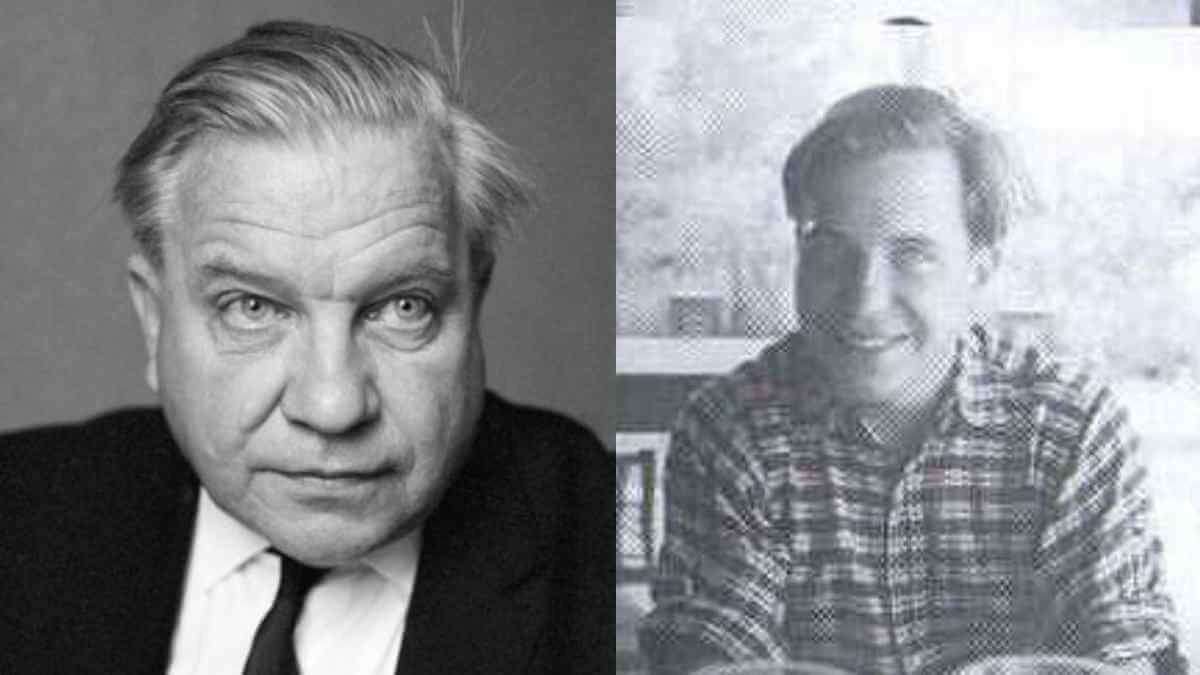Leslie Durrell: The Enigmatic Brother of Corfu

Leslie Durrell, often overshadowed by his more celebrated siblings — Lawrence, Gerald, and Margo — remains a fascinating character in the Durrell family saga. In the stories of Corfu and in the memories of those who knew him, he emerges as a complex blend of charm, stubbornness, loyalty, and quiet pain.
Early Life and Family Background
Leslie Stuart Durrell was born on 10 March 1917 in Mymensingh, Bengal (then British India), the second son of Lawrence Samuel Durrell and Louisa Durrell. The Durrells were part of the British Raj society, and the family dynamic was shaped by colonial life, shifting fortunes, and a shared love of language and nature. As siblings, they developed intense attachments, rivalries and protectiveness for one another, which later surfaced vividly in their adult years.
From early childhood Leslie was known as a robust, outdoorsy type, less academically inclined than Lawrence, less scientifically minded than Gerald, but no less spirited. His own interests ranged from painting to hunting and fishing, from camaraderie with local friends to romantic entanglements. He was not content to sit in the shadows; his personality demanded a stage, even if his natural reticence often held him back.
Corfu — A Formative Chapter
The Durrell family’s move to Corfu in 1935 proved a defining episode in Leslie’s life. He was 18 when they arrived, and the Greek island quickly became the theatre of their most memorable adventures. Under a brilliant sun, among rugged landscapes, he felt more alive than ever before. Corfu brought out in him a simmering passion for life — for the sea, for shooting, for companionship, wit, exuberance, and sometimes for mischief.
Gerald’s accounts in My Family and Other Animals, Birds, Beasts, and Relatives, and The Garden of the Gods portray Leslie as the irrepressible elder brother — bold, blunt, protective, occasionally irritable, a bit of a raconteur. But literary portraits cannot capture the full person. Leslie’s own struggles — to find stability, to balance family expectations, to live within the family’s shifting fortunes — often went unrecorded in those memoirs, though hints persist in correspondence, archival notes and private family lore.
World War II and Its Aftermath
When the Second World War erupted, Leslie’s life took unexpected turns. His application to join the Royal Air Force was rejected on grounds of imperfect hearing, striking a blow to his sense of purpose. Undeterred, he and his mother found work in an aircraft factory at Bournemouth. This period was difficult — physically, psychologically, emotionally — but it also strengthened familial bonds, particularly between mother and son, and created a pattern: a capacity to adapt, albeit reluctantly, to life’s exigencies.
In those years, Leslie became closer with Maria, the family’s Greek maid on Corfu, and eventually fathered a son, Anthony (Tony) Leslie Condos, born 19 September 1945. The relationship was complex and fraught: a tension between loyalty to his family, normative expectations, cross-cultural friction, and the hidden shame of illegitimacy in mid-century Britain. For many years, the existence of that son was quietly tacked into the background of Durrell family life — a private truth amid public narratives.
Kenya and the Search for Stability
Not long after the war, in 1952, Leslie married Doris Irene Hall. The couple decided to try a fresh life in Kenya, seeking opportunity far from the family’s shadow. There, Leslie attempted to forge a new identity: farmer, manager, caretaker, a man not reliant on his brothers’ reputations. But throughout Africa, he was dogged by financial difficulties, unpredictable climate, and the uncertainty of colonial to post-colonial transitions.
Kenya years were not easy. Maintaining a farm demanded energy, resourcefulness and patience. Meanwhile, his brothers — Lawrence writing novels, Gerald building a reputation as naturalist and broadcaster — were achieving external success, shadowing Leslie’s own endeavours. In 1968 circumstances forced Leslie and Doris to leave Kenya and return to Britain. The once-vibrant hopes of African fame had given way to retrenchment and adjustment.
Later Years in England
Back in Britain, Leslie’s life took a humbler path. He became a caretaker in a building near Marble Arch in London. Though the role lacked glamour, it offered a measure of stability and routine, a chance to survive quietly. As years progressed, his health deteriorated. The heart that had known passion, frustration, undiminished loyalty, eventually gave in.
He died on 13 August 1982 in London of a heart attack. Some accounts (mistakenly or otherwise) place his death in 1983, but the accepted date is 1982. In the weeks and months preceding his death, friends and family observed that he grew more withdrawn, more cautious, more resigned — as though he had long suspected that life might bring this end.
He was 65.
Personality, Strengths, Weaknesses
Leslie Durrell’s character resists simplistic categorisation. His strengths lay in loyalty, courage, conviviality, a willingness to bend rather than wholly break under pressure. He was a raconteur at times: telling tall stories, glossing over difficulties, trying to keep up appearances while feeling the weight of responsibility. He could be brusque, impatient, sometimes emotionally distant — but for those he trusted, he could be generous, protective, even tender.
Among his weaknesses: a propensity to avoid intellectual or emotional introspection, a discomfort with failure (especially public ones), a reluctance to confront unresolved personal matters (such as his son’s ambiguous status within the family). He had no natural outlet for ambition beyond supporting his family and trying to carve out modest independence. In a family of writers, travellers, adventurers and public personalities, his more private life could seem, to outsiders, second best — but to him, it was the path he had chosen, whether by fate or will.
Leslie in Literature and Television Adaptations
Because Gerald’s memoirs drove the public image of the Durrell family, Leslie’s depiction is mediated through Gerald’s affectionate but selective lens. The literary Leslie is witty, exasperated, occasionally inept, but always loyal. In the television adaptation The Durrells (aired by ITV), Leslie is a more polished, dramatized figure — often romanticised, sometimes simplified, sometimes conflicted in ways designed for narrative tension. Fans often debate how much the show captures the “real” Leslie versus how much it embellishes for drama.
Writers about the Durrell family, like Michael Haag and Douglas Botting, have attempted to peel back these layers, contrasting Gerald’s memoir-Leslie with archival materials, letters, and family testimonies. These works suggest a more nuanced individual: vulnerable, compromised, often striving, sometimes failing — but rarely uninteresting.
Legacy and Historical Significance
Leslie Durrell’s legacy lies less in fame and more in the texture of lived experience. He occupies a liminal space: not the celebrated writer, not the acclaimed naturalist, not the glamorous adventurer — but the man who helped keep the family afloat, who touched many lives quietly, whose ambitions were modest but real.
In studying Leslie, scholars and fans of the Durrells gain a more holistic picture of the family’s life: that success, love, faith and art cannot always be captured by memoirs or television. His story reminds us that in every famous family, there is always someone who works behind the scenes, who feels the strain of shared fame, and who pays dearly for choosing a life of lesser spotlight.
Lessons from Leslie’s Life
Value in the quiet lives. Not all lives need grand acclaim to matter. Leslie’s modest efforts, his care, his commitment, count.
Acceptance of limits. He understood, sometimes painfully, that his own talents and circumstances would not match those of his siblings — and yet, he persisted.
Family as both anchor and burden. He loved his siblings and family, even as that love sometimes trapped him in comparative obscurity.
The human cost of compromise. From unacknowledged children to failed ventures, Leslie’s life shows how many people negotiate deep regrets in private.
Memory and myth vs real human complexity. The Leslie in the memoirs and the Leslie in the archives diverge — showing how storytelling reshapes reality.
Conclusion
Leslie Durrell stands as a compelling figure in the Durrell mythos: the pragmatic brother who lingered in the background, whose life had both brightness and shadows. Through romantic landscapes, wartime struggle, exile, return, and decline, he endured. He was not destined to become a literary icon; rather, he was destined to be human — flawed, resilient, loving, and quietly significant. In exploring his life, we come closer to understanding not only the Durrell family, but the hidden stories behind every celebrated name.



